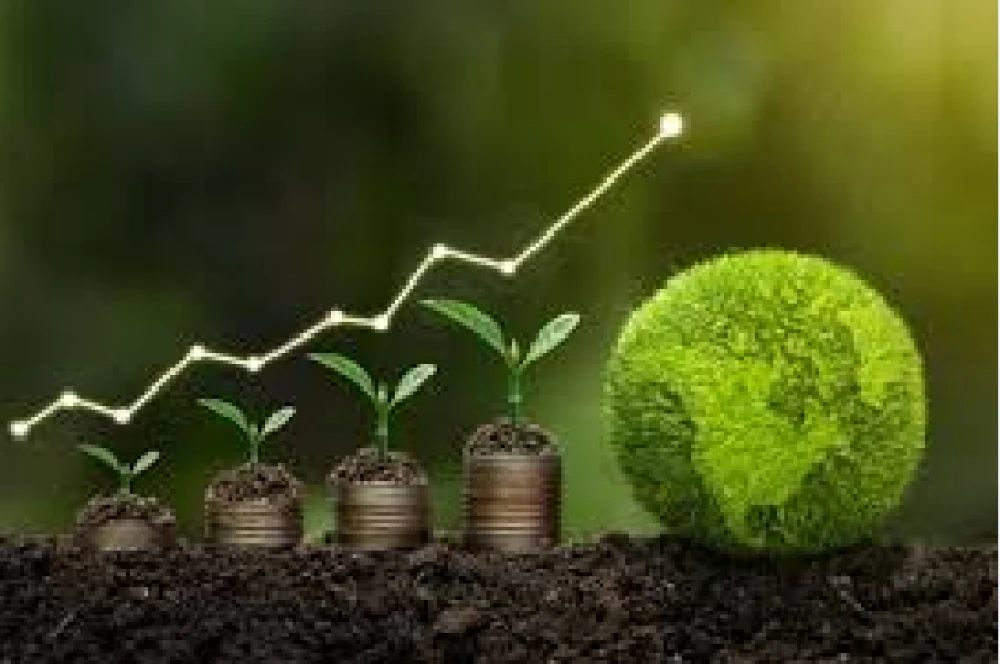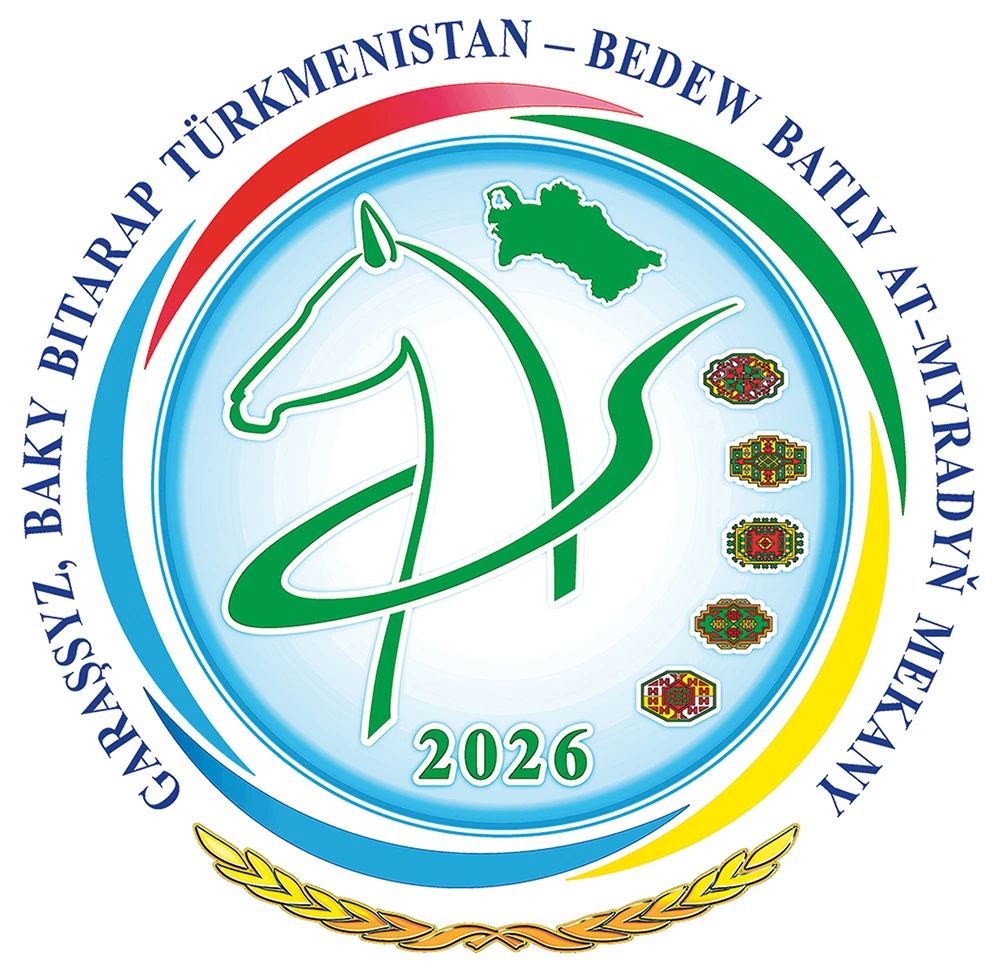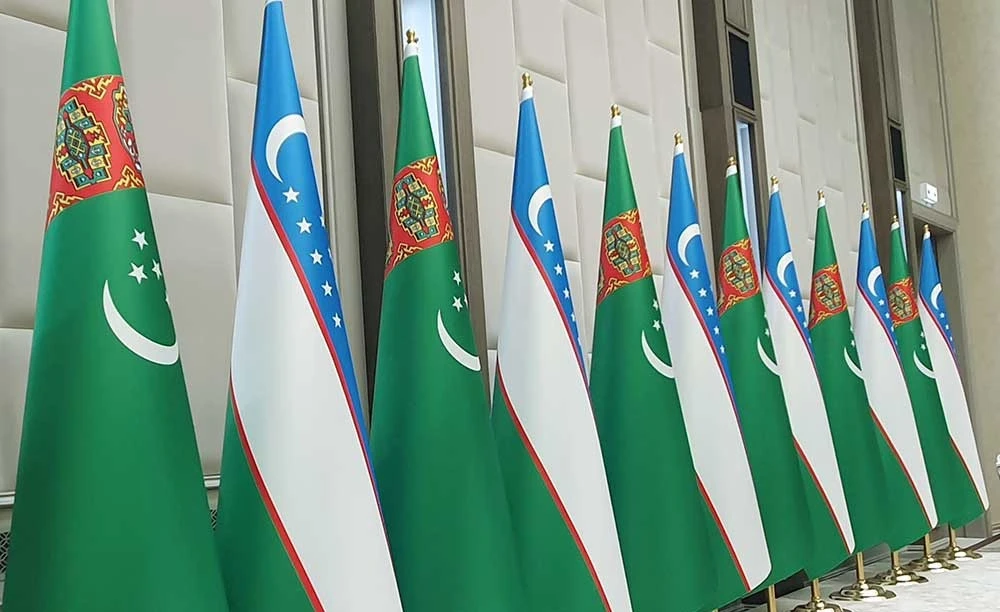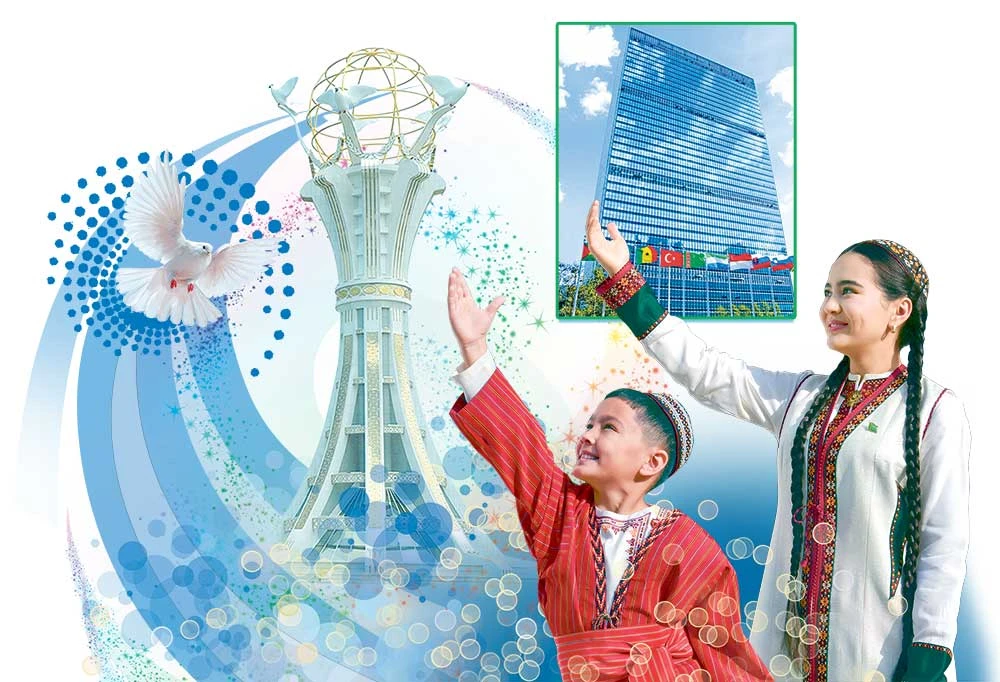
14/09/2024
2135
Building a Greener, Smarter Turkmenistan: The Role of Digital Innovation
On September 20, the country will hold a scientific-practical consultation entitled
«Digital and «Green» Economy - a condition for ensuring sustainable economic
development.» As mentioned, the meeting includes speeches on the development of
sectors of the economy, financial and economic and monetary policy, labor relations,
standardization system, measures to develop the digital and «green» economy,
digitalization of the life protection system.
The Digital Economy fueled by advancements in technology, has transformed
industries and societies worldwide. Turkmenistan, like many nations, recognizes its
potential to stimulate economic growth, create jobs, and improve efficiency. Key aspects
of the digital economy include
E-commerce: Online platforms for buying and selling goods and services.
Digital Services: Cloud computing, data analytics, artificial intelligence,
and cybersecurity.
Digital Infrastructure: Broadband internet, data centers, and
telecommunications networks.
The Green Economy prioritizes environmental sustainability and resource
efficiency. It seeks to transition away from fossil fuels and unsustainable practices
toward cleaner, renewable energy sources and environmentally friendly technologies.
Key components of a green economy include:
Renewable Energy: Solar, wind, hydro, and geothermal power.
Energy Efficiency: Reducing energy consumption through improved
technologies and practices.
Sustainable Agriculture and Forestry: Promoting environmentally
friendly farming and forest management.
Circular Economy: Minimizing waste and maximizing resource utilization.
The Synergy of Digital and Green Economies presents a unique opportunity for
Turkmenistan. Digital technologies can enable efficient resource management, accelerate
the adoption of renewable energy, and promote sustainable practices. For example:
Smart Grids: Intelligent energy networks that optimize power distribution
and integrate renewable sources.
Digital Agriculture: Precision farming techniques that use data to improve
crop yields and reduce environmental impact.
E-waste Management: Efficient recycling and disposal of electronic waste.
Primarily, we would like cast light upon the very insight of the topic "Green
Economy". At its core, the green economy is a way of designing economic policies and
practices that aim to be environmentally sustainable. This concept focuses on reducing
environmental risks and promoting sustainable development without degrading the
environment. It strives to minimize environmental impact while promoting economic
growth, seeks to create a balance between economic development and environmental
protection. This means businesses and governments work towards reducing carbon
emissions, conserving natural resources, and using renewable energy sources.
Promoting the green economy requires a combination of strategies that incentivize
environmentally sustainable practices and regulate harmful ones. Some of the strategies
for promoting the green economy include the use of incentives, regulations, education,
and investment in research and development.
Incentives are a powerful tool for promoting the green economy. Governments can
offer tax incentives to businesses that adopt sustainable practices such as reducing carbon
emissions, using renewable energy sources, or implementing eco-friendly technologies.
Incentives can also be offered to consumers, such as rebates or tax credits for purchasing
electric vehicles, installing solar panels, or upgrading to energy-efficient appliances.
Regulations are another strategy for promoting the green economy. Governments
can impose regulations and standards that mandate businesses to adopt sustainable
practices or limit their environmental impact. For example, governments can implement
emission standards for industries such as transportation or manufacturing, require
companies to report on their environmental impact, or ban the use of harmful chemicals
or materials.
Education and awareness-raising are also critical strategies for promoting the green
economy. Governments, organizations, and businesses can educate consumers and
employees on the benefits of adopting sustainable practices and the environmental impact
of their actions. This can include promoting recycling, reducing waste, conserving
energy, and supporting sustainable agriculture.
Despite its benefits, transitioning to a green economy presents challenges. These
include high upfront costs for green technologies, resistance to change from established
industries, and the need for supportive policies and regulations. However, these
challenges also present opportunities for innovation and collaboration. Governments,
businesses, and communities can work together to overcome barriers and accelerate the
transition.
In the final assumption of all of the above, we would like to conclude that the green
economy represents a transformative approach to economic development, aligning
economic growth with environmental stewardship. By embracing sustainable practices,
investing in green technologies, and fostering resource efficiency, societies can create a
more resilient, equitable, and thriving future. The shift towards a green economy is not
just a necessity but an opportunity to redefine prosperity in a way that honors both people
and the planet.
Mahri GUZYCHYEVA,
the 2 nd year student of the Faculty of International Economic
Relations of the Institute of International Relations
of the Ministry of Foreign Affairs of Turkmenistan.


